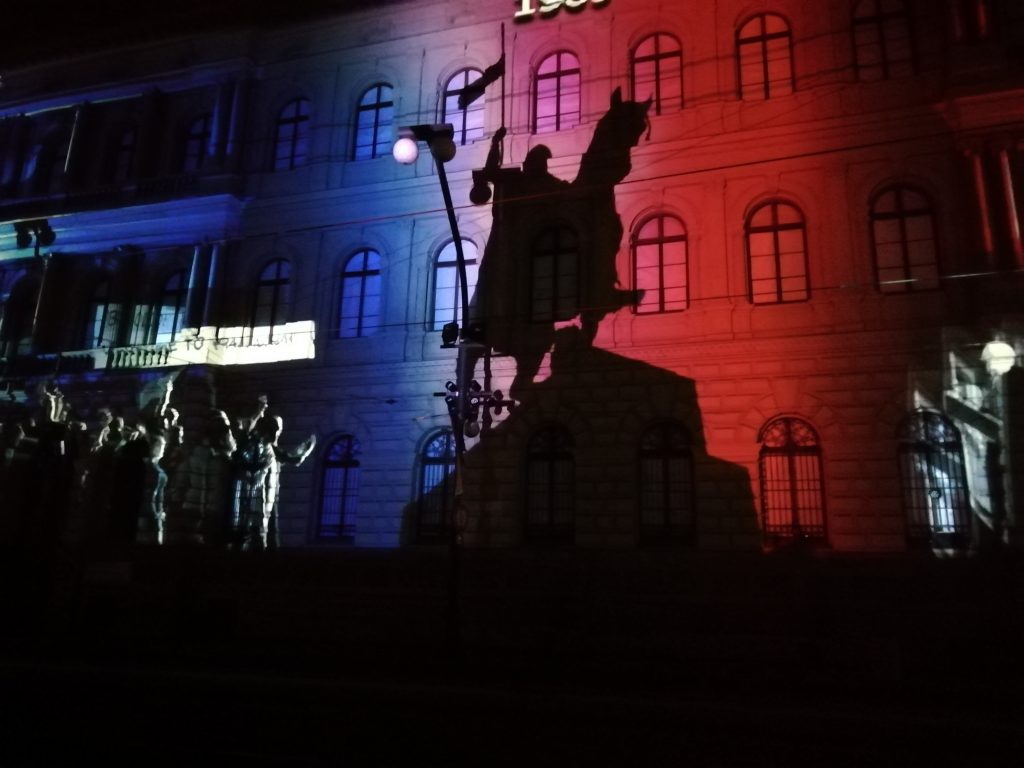When the countries of Central Europe emerged from the dominion of emperors, kings and foreign powers the independence they achieved turned out to be fairly short-lived for most of them (Hungary is another story, but well…). Of course in the aftermath of World War One, the crowds celebrating in the streets couldn’t see the future, just the joyous present and the past, the imperial past whose statues they were toppling over like the Marian Column torn down in Prague’s Old Town Square just as statues of Lenin and other Soviet relics would be torn down after 1989.
The powers that be, of whatever stripe, have always built their monuments in stone. It’s a way of tagging their territory, of expressing their permanence. Then people eventually come along and smash these same monuments into rubble to remind us of precisely the opposite.
The occasion of the 30th anniversary of the collapse of the Iron Curtain represents a ten-year improvement on the previous period of liberation…at least so far, so good. Still, it might be prudent not to celebrate with a monument in stone, just as the proponents of alternatives to the current order might want to give up on the ponderous, inartistic eyesores they are undoubtedly planning. All these statues will end up knocked over to triumphant cheers, dynamited, though probably not before having their heroes’ noses broken off, getting covered in graffiti and being carted off to a museum for tourists to use them as a backdrop to their scenic, historical selfies.
So if colossal stone monuments don’t offer permanence then what does? Well the answer, sadly, is nothing. This is true everywhere and perhaps especially in Central Europe, where instability can be called a regional specialty.
But if you’re looking for the next best thing then you might want to look at words, which is why we – with the help of some outstanding translators – are bringing you a selection of short stories and short story collection reviews from Central European writers. Though an often overlooked form, the short story can be a literary snapshot of time, place, sensibility, and so much more.
Over the following three weeks, we will present you with work from Slovakia, the Czech Republic, Hungary, and a piece by a Croatian writer set in Prague’s infamous 90s.
The issue begins today with the story “Rebi” by award-winning, Transylvanian-born Hungarian writer Ádám Bodor.
— Michael Stein and Jan Zikmund
